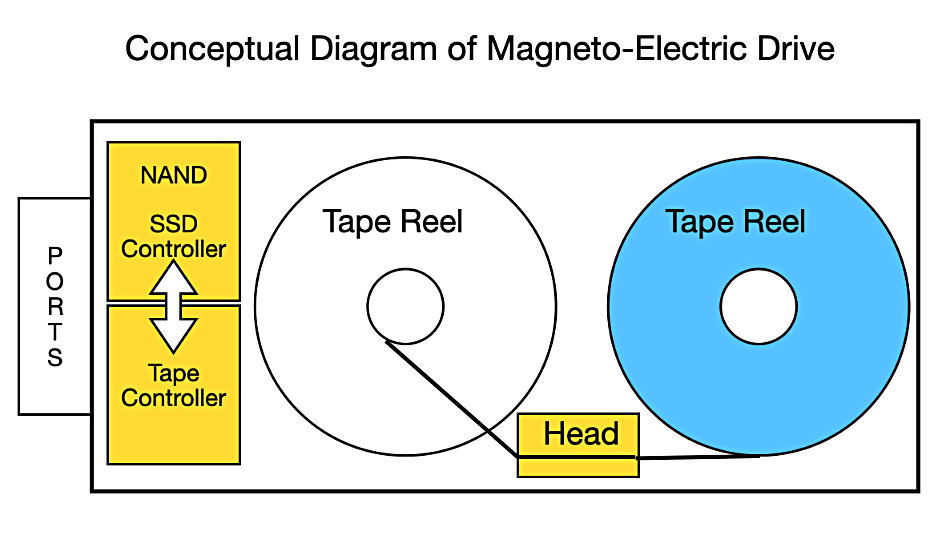As Huawei is on the U.S. government’s Entity List, the company has trouble obtaining hard drives made by American companies. As a result, the company develops its own storage technologies to replace HDDs. Earlier this year, Huawei introduced its so-called magneto-electric disk (MED) storage technology, which combines the performance of SSDs with the capacity of tape. MED is designed to address nearline (warm) and archive (cold) storage applications and is meant to replace classic HDDs, thus reducing reliance on American technology, reports Blocks and Files.
MED integrates an SSD with a proprietary tape system (tape, motor, read/write head, and tape spools) contained within a single sealed unit. This design enables MED to operate like a disk with block-based storage, combining high-speed access from the SSD for warm data and slower tape storage for archiving cold data. MED contains around half the length of standard LTO tape to store archival data. The tape moves through the read-write heads automatically, eliminating the need for external robotic systems seen in tape libraries.
Data management within MED is straightforward: incoming data is written to the SSD and is then sequentially moved to tape storage. The system has metadata maps stored in NAND, allowing it to locate specific data blocks and fetch them from either SSD or tape. The SSD, equipped with a flash translation layer (FTL), processes and manages data blocks to maintain optimal performance for warm storage.
The performance of MED looks quite impressive. The first-generation MED holds 72 TB of data and uses only 10% of the power required by traditional disk drives. In a rack setup, MED units can achieve a combined throughput of 8 GB/s, offer over 10 PB of storage, and consume under 2 kW of power, which makes them a cost-effective and power-efficient choice for data centers.

Huawei says that MED promises a 20% reduction in total cost of ownership compared to conventional…
Read full post on Tom’s Hardware
Discover more from Technical Master - Gadgets Reviews, Guides and Gaming News
Subscribe to get the latest posts sent to your email.








